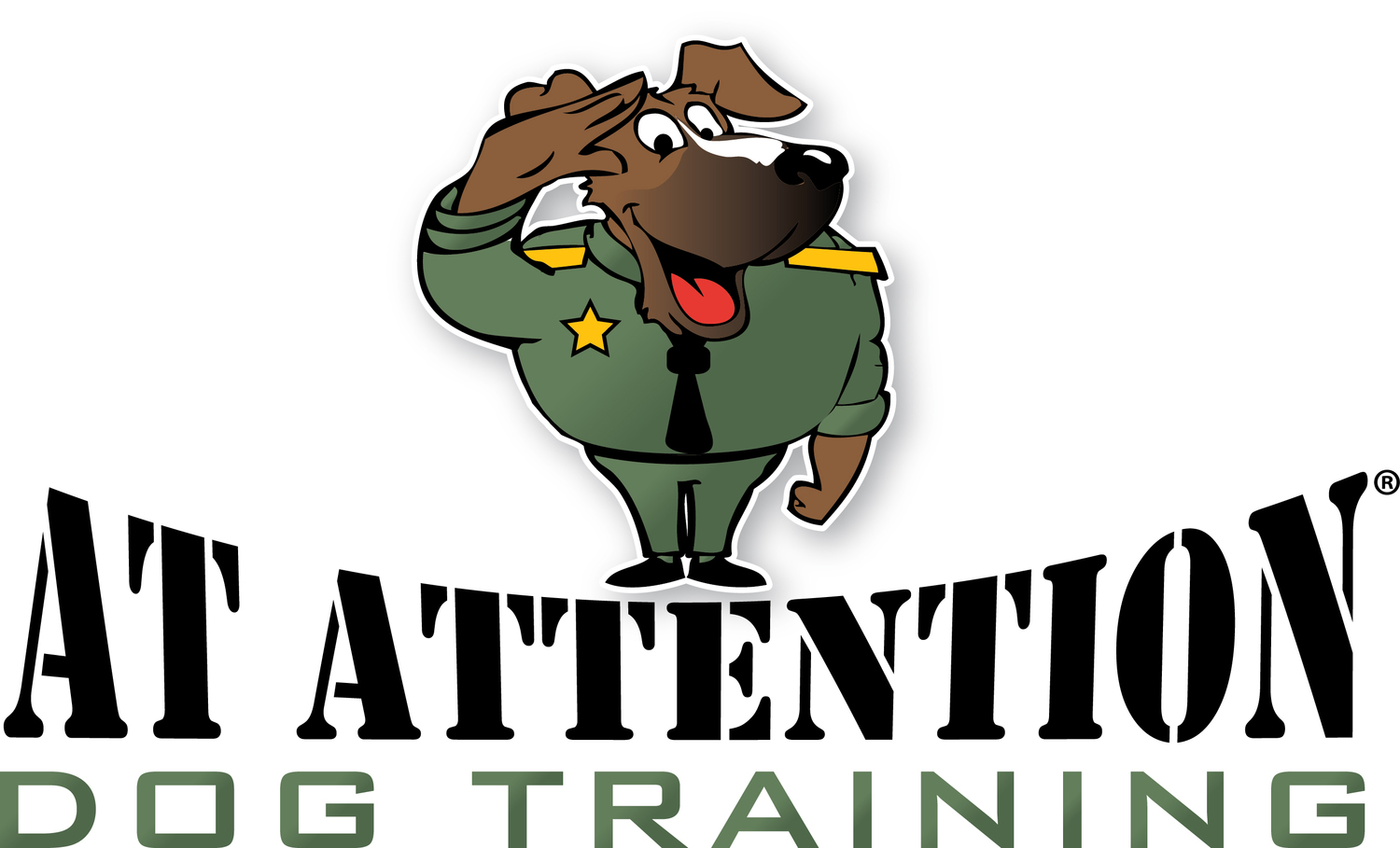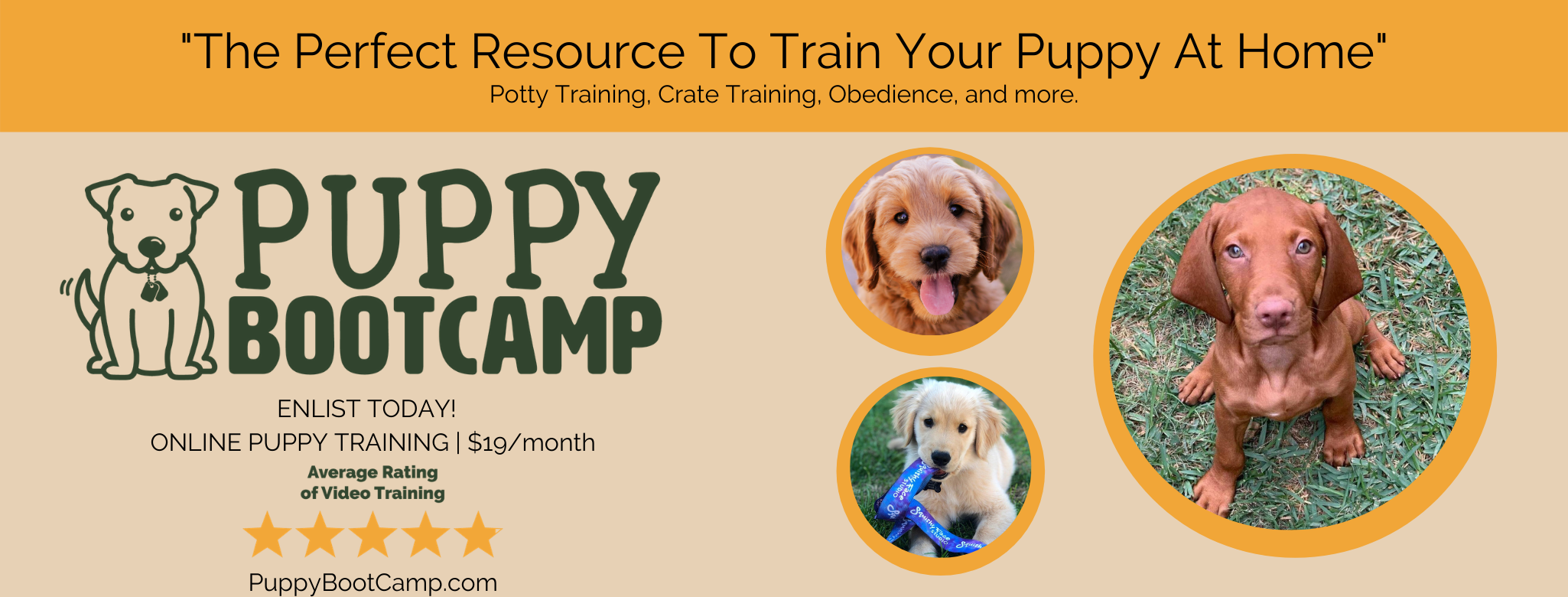A great resource to train your puppy and get them housetrained is through online training. Check out Online Puppy BootCamp
Housetraining Tips
Housetraining can seem like hard work—but whatever you do, don’t get discouraged! Follow these 10 tips and you’ll be amazed at how quickly your puppy catches on!
1. Do: Use a Crate
Your puppy won’t go to the bathroom in his crate because he won’t want to lay in his mess. That means he’ll “hold it” until you take him out, so use this to your advantage! Make sure your puppy sleeps in his crate at night and give him multiple opportunities to rest in his crate throughout the day. Every time you take him out of his crate, take him straight outside.
2. Do: Have a Designated Elimination Area
Always take your puppy to the same area—this isn’t the time to go exploring. Before long he’ll associate that spot with toilet time and will quickly come to understand what he’s supposed to be doing there.
3. Don’t: Talk
It’s important to let your puppy focus! That means no talking or playing while you wait for him to go. Puppies are easily distracted and he will get down to business more quickly if you don’t divert his attention from the task at hand.
4. Do: Use a Keyword
You shouldn’t talk while waiting for your puppy to eliminate, but it is a good idea to say a word like “potty” in an enthusiastic, positive tone as he finishes up and to reward him with a treat. Eventually he’ll make the association and your keyword will prompt him into “action.”
5. Do: Watch the Clock
Give your puppy 15 minutes to do his business. If nothing happens, put him in his crate for another 15 minutes before trying again. If it’s first thing in the morning, he will need to do both #1 and #2—so if he only urinates, return him to his crate for 15 minutes and try again.
You may need to repeat this process many times throughout the day, so be patient! Don’t try to cut corners by waiting any longer for something to happen. If you hang around outside too long, your puppy will think you’re just there to enjoy the great outdoors together. He needs to understand that when you go to his designated toilet area he has a very important job to do and needs to get to it!
6. Do: Pay Attention
Whenever your puppy is out of his crate, keep an eye on him at all times, watching for signals that he’s ready to go again. You’ll get to know your puppy’s particular “tells,” which usually include sniffing the ground intently, circling, rushing to a corner/somewhere out of sight, or rushing toward the door. If you think he has to go, get him outside ASAP.
Avoiding accidents in the house isn’t just about keeping your carpets clean—it will also help you house train your puppy more quickly and effectively. The more accidents your puppy has inside, the less clear it will be to him that he should only be going to the bathroom outside. It’s not always possible, but do your best to make sure he goes outside every time.
7. Do: Know When to Take Your Puppy Out
By now you know your puppy should go outside every time he comes out of his crate and whenever you see him signaling. But those aren’t the only times your puppy needs to go out; you take him outside immediately after every meal, after drinking, after active play, after training, after napping, whenever he gets stressed or excited, and right before bed.
8. Do: Keep a Regular Schedule
Consistency is key when it comes to housetraining and keeping a regular schedule is a great way to simplify the process. If your puppy wakes up, eats his meals, and goes for walks at the same time every day, his elimination schedule will start to become regulated too.
9. Don’t: Stop Training Too Soon
It might be tempting to relax the rules once your puppy starts getting the hang of things, but it’s essential that you continue with your routine for several months to make sure the behavior is truly ingrained in your puppy’s mind. Don’t stop training until he can go a few months without a single accident. Otherwise, you could end up with a dog who isn’t fully housetrained.
10. Don’t: Punish Your Puppy
Dogs should NEVER be punished for accidents, regardless of age. So when accidents happen, as they inevitably do, don’t rub your puppy’s face in it, yell or threaten him in any way. You’ll only succeed in scaring him and he may just find a more out-of-the-way spot to go in the future.
Remember, dogs don’t eliminate in the home out of spite. Dogs have accidents for three reasons: because they don’t understand that they’re only supposed to go outside, because they haven’t been taken out frequently enough and can’t hold it any longer, or because of health issues. It’s up to you to make sure your dog doesn’t have accidents in the home—with consistency and positive reinforcement.

